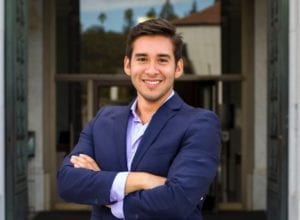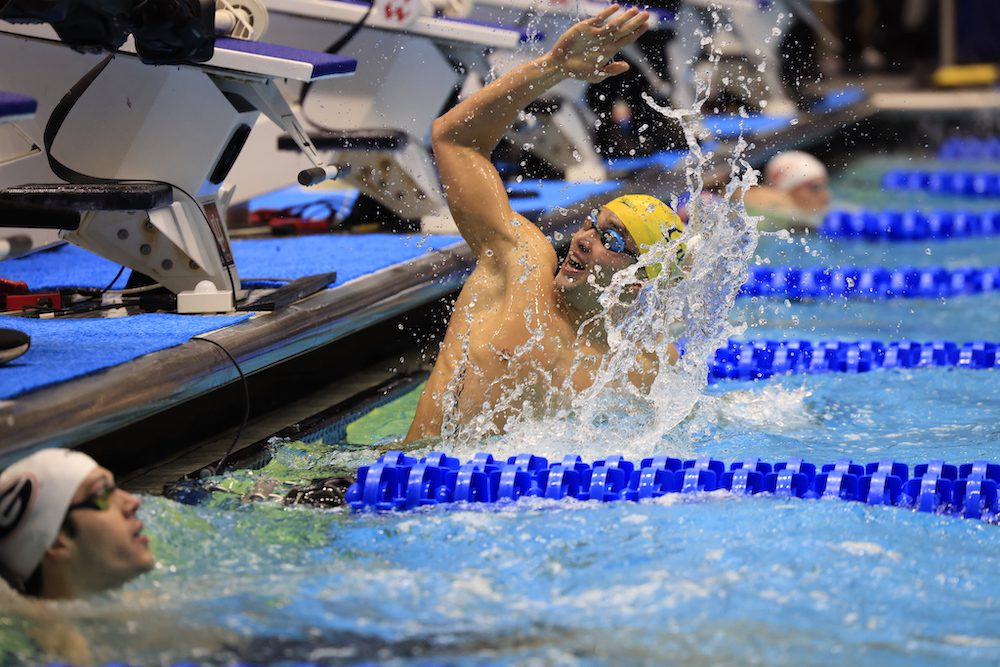
As a UC Berkeley freshman, Destin Lasco, BS 24, of the Cal Men’s Swimming & Diving team, emerged as one of the nation’s best backstrokers. Now a senior at Haas, he’s just returned from the NCAA championships in Indianapolis, where he broke the NCAA and American men’s 200 backstroke record. (He also swims the individual medley and freestyle.) Fresh off of that victory, Lasco, a three-time USA Swimming National Team member, is training for the 2024 Olympic trials in Paris this summer.
In this interview, he discussed balancing class at Haas with training, his friendship with fellow backstroker and Olympic gold medal winner Ryan Murphy, BS 17, and how his parents inspired him to study business.
Can you tell us about your background? Where did you grow up?
I’m from New Jersey. I studied at Mainland Regional High School. When I was going through my recruiting process, my second choice was Stanford. But the reason why I wanted to come to Cal was just how real it was and how the education system here sets you up the best for life. When I was hanging out with all of the athletes at Cal, they emulated this energy of, “Nothing is handed to you. You’ve got to earn it.” And that’s how life is. And that was the reason why I came to Cal, to set myself up for life outside the pool.
That was the reason why I came to Cal, to set myself up for life outside the pool.
How did you get into swimming?
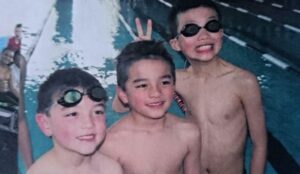
I lived near the Jersey Shore. When my brother was 5 years old, he was crabbing with my uncle, and the rope caught around his ankle, and he fell in with the trap. He didn’t know how to swim, so my uncle had to dive in and save him. When that incident happened, my parents said, ‘You guys have to know how to swim.’ So we went to the Atlantic City Aquatic Club 15 minutes from our house. One of the requirements to make the team was to swim a lap, and my brother was able to swim the lap. So they took him. But when it was my turn, I couldn’t do the full lap. After private lessons for six months, I went back and barely swam the lap. Since my brother was already showing promise of being a top athlete, they said, ‘We’ll just take the younger brother, too.” And the rest is history.
Yes, you went on to swim at Cal and be named the 2021 Pac-12 Freshman Swimmer of the Year. What do you love about swimming?
What I love about swimming is the grind aspect. You do it because you love it. Swimming taught me so many things about discipline. I’ve also learned about that from Ryan Murphy, who is a Haas grad. He showed me a whole different perspective—how you eat, how you sleep, how you do time management, building a routine. The most valuable advice he gave me was about consistency, making sure you’re giving 100% every day.
The most valuable advice he gave me was about consistency, making sure you’re giving 100% every day.
How did you meet Ryan?
I’ve been chasing his national records ever since I was a young kid around 11, 12 years old. I always knew the name. I met him officially in 2017 and got to talk to him a little bit. But he wasn’t at Cal yet. I wasn’t committed or anything. He just knew me as a kid coming up through the ranks. That’s when our relationship started to blossom. And then, he ended up coming here and became my training partner. We practice every single day, and we have lockers next to each other. I just try to be a sponge around him and learn as much as I can and not to bother the man too much.
I’ve been chasing his national records ever since I was a young kid around 11, 12 years old.
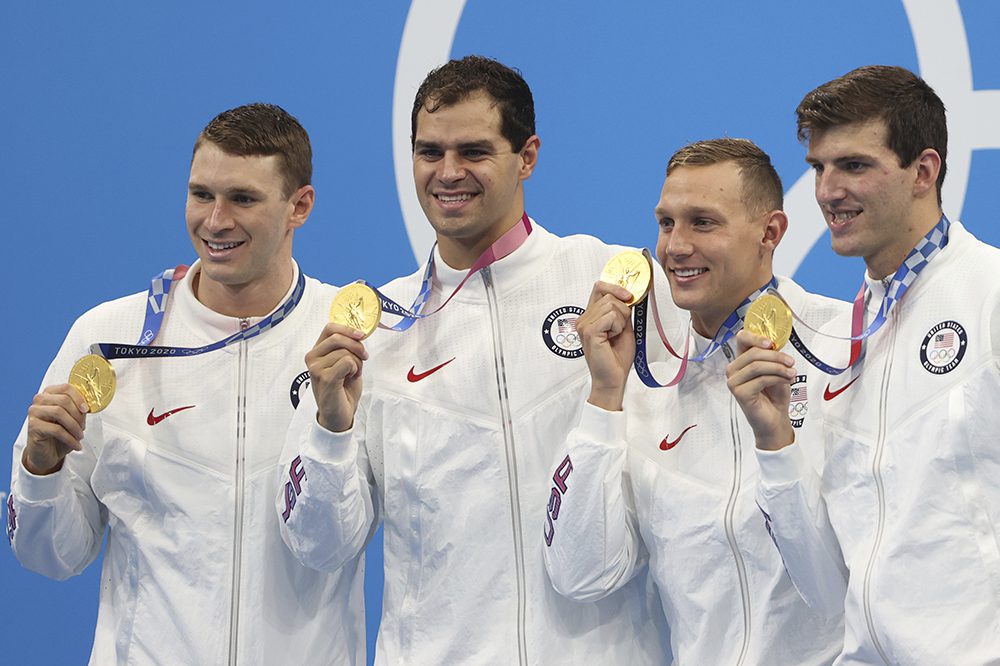
How do you manage your time, balancing school and practice?
The things I allocate time for are recovery—massage, stretching, sleeping, making sure I’m hydrating well. And then comes studying, making sure I’m doing my homework and going to office hours when I need it. And then, the third thing is nutrition—not eating out a lot and trying to cook my own meals. I just had lunch with (my roommate and Haas undergraduate) Cal swimmer Björn Seeliger (BS 25). We made a seared steak with a mushroom sauce, and we had kale salad with fruit. It was so good.
Your NCAA race was called a ‘composed, patient swim,’ because you were in fifth at the half before suddenly pulling ahead. How do you feel about breaking the national record in the 200 backstroke?
It feels good. But the goodness I feel is because somebody else broke it three weeks before I did, and I was like, “That has to be a Cal record.” I cannot let that record fall into anyone’s hands. So it felt great to do it after I kept missing it and was trying to find ways to get there. To see it finally happen was amazing.
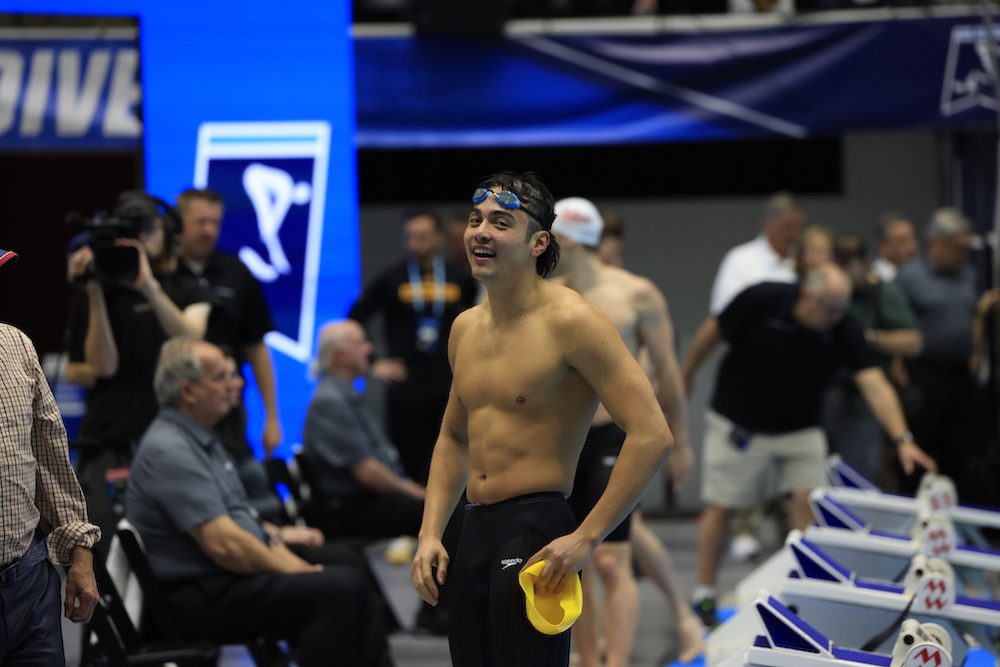
What did you do to celebrate?
Coach Dave (Durden) gave us two days off. So I got to enjoy Easter, which was nice—just lay down and do nothing. But that’s about it. I’m back in the grind now because of the Olympic trials that are 11 weeks away. I really just want to use the momentum from NCAAs to carry me through the summer.
What would competing at the Olympics mean to you?
I always say this, but it’s a dream. It’s like that white whale you chase. So it’s the white whale I’ve been chasing, and it would be a dream come true.
What do you love about the backstroke?
I love backstroke because you can breathe the whole time. Your face is not in the water and that’s huge. You also start in the water, so you don’t have to worry about your goggles coming off during your race. And also, backstroke is hard. It’s an underrated stroke.You have to be very mentally tough to do it. Backstrokers are the most mentally tough swimmers. You can ask Ryan. He will agree!
Why did you want to study business?
Seeing my parents open their own business sharpening medical equipment and the sacrifices and dedication it took. My dad and mom were working two jobs, my mom was in the casino industry because that’s really popular where I’m from. I would wake up for practice at 5 in the morning, and my dad would drive me. Just seeing the amount of passion that they had and the hustle it took, that inspired me to study business. My mom always cooked me fresh meals ,and she would sleep maybe five hours and take naps just to make my swimming dream a reality. Now, they have a mobile sharpening service; they pull up to hospitals and sharpen all their instruments.
What’s your favorite class that you’ve taken?
Corporate Finance and Financial Analysis with Steve Etter for sure. Another class I loved was UGBA 133, Investments, with Sam Olesky. Great professor.
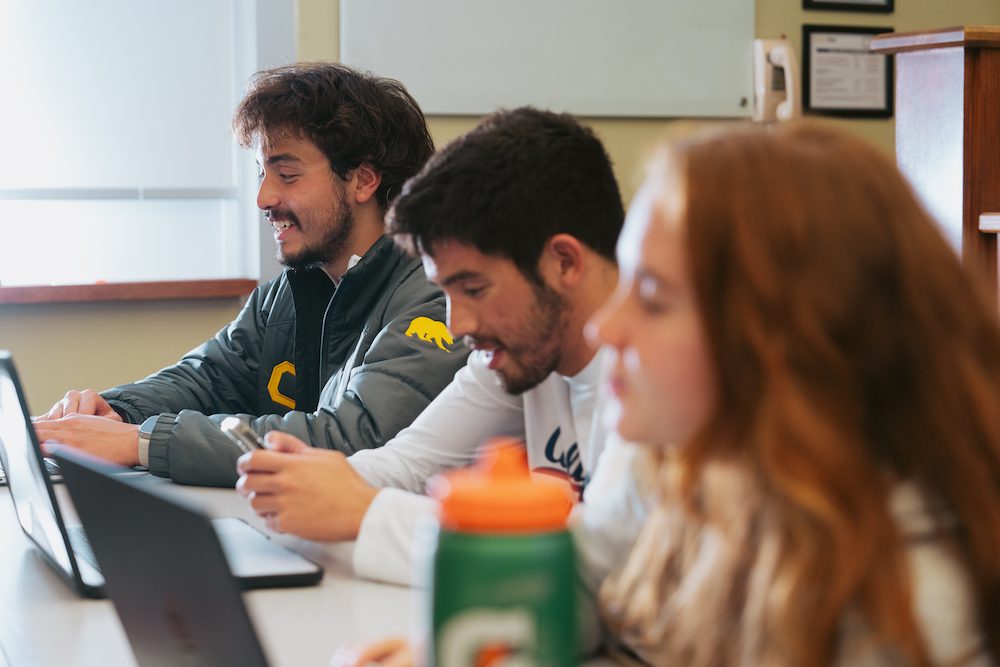
Do you want to follow in your parents’ footsteps as an entrepreneur?
That’s a goal, but I know you have to have experience under your belt. I want to first work at a big company and learn how to work in teams and learn how to think on a macro level, so when I open my own thing, I can start micro and then build.
You are graduating this spring. What have you enjoyed about being at Haas?
Going to Haas and being in classrooms of like 30 to 50 kids, I felt like I was back in high school, where I know the professors and the GSIs on a genuine level. You take one course, and the next semester, you’re in the same course with a kid you took finance with. You get to build those really close relationships. The people here are just passionate about what they do and are passionate to pass down what they’ve learned, so I love that.
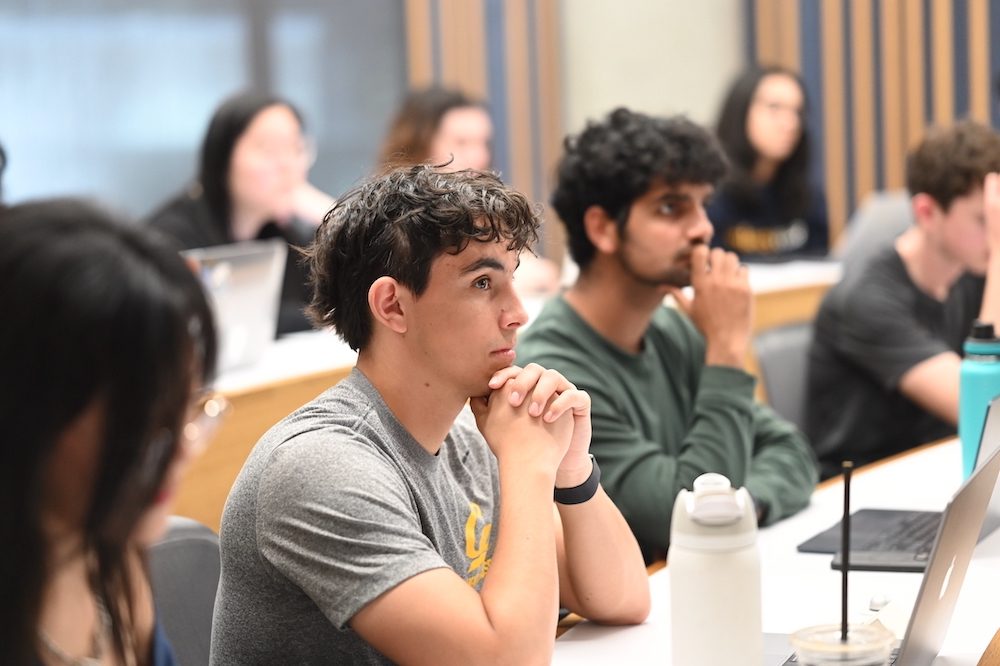
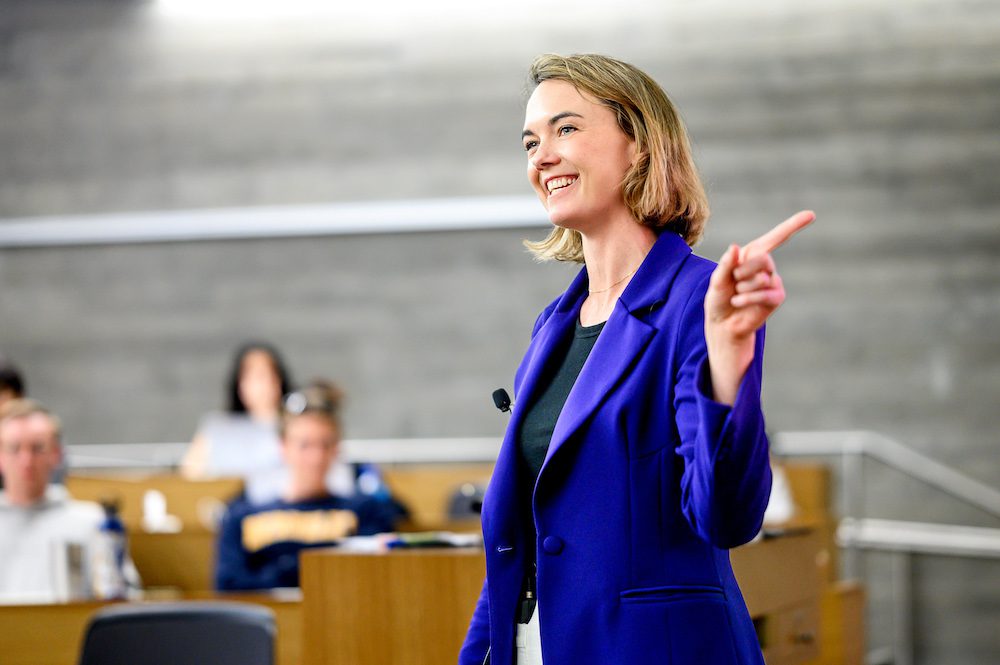
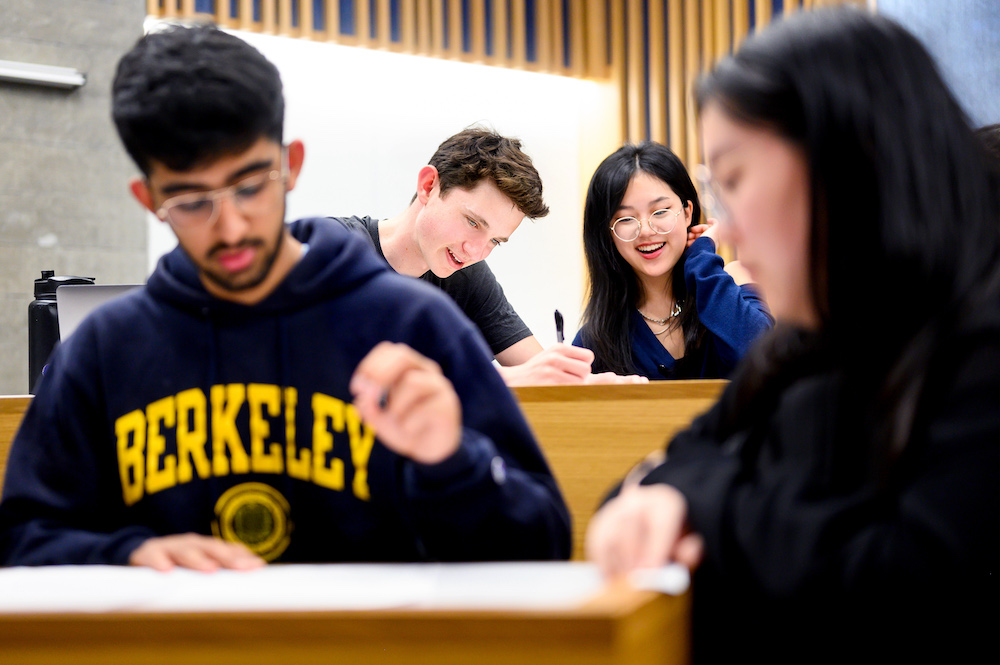
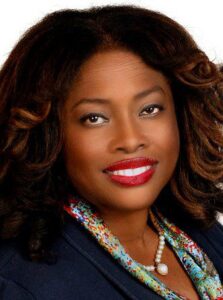
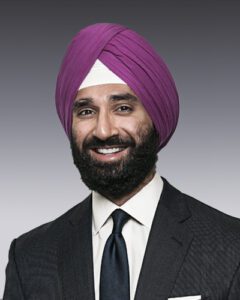
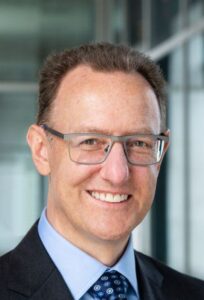
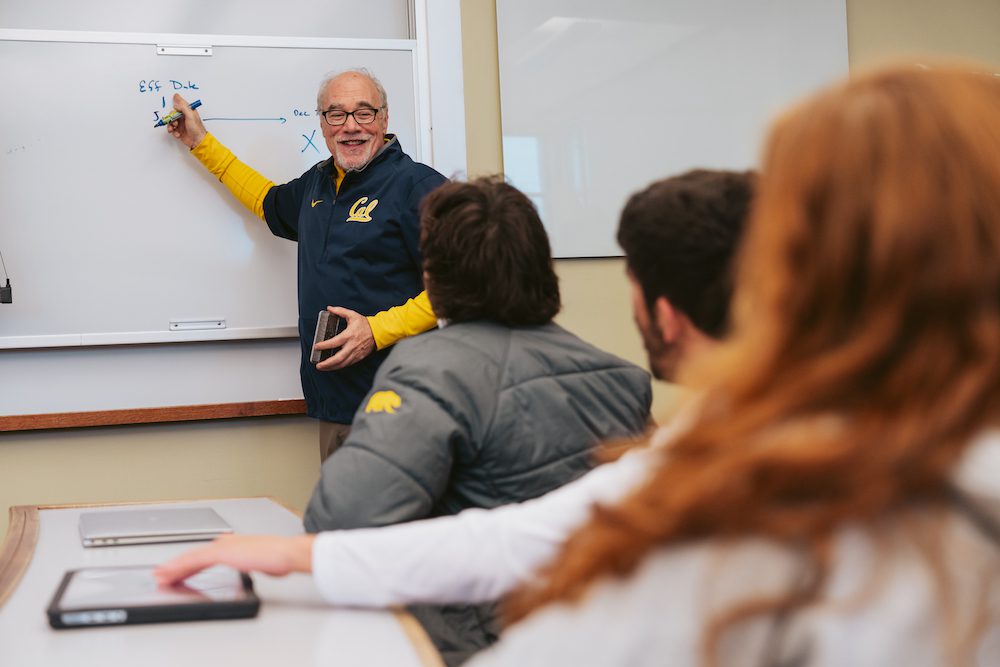

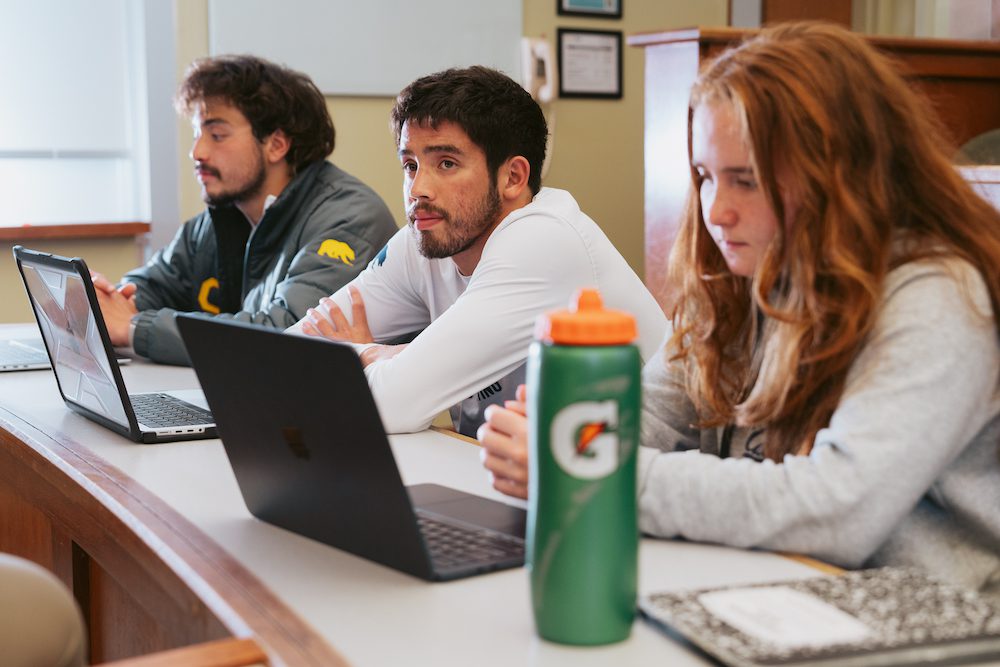
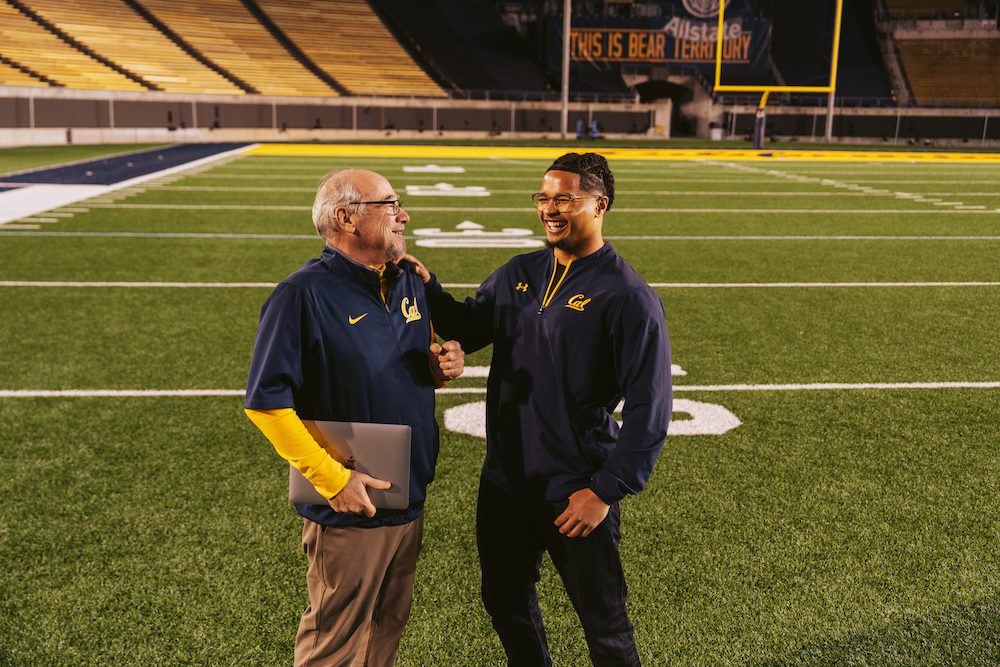
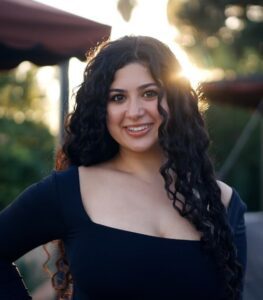
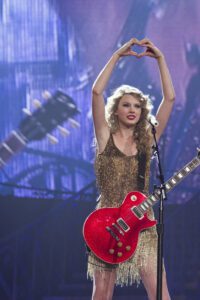

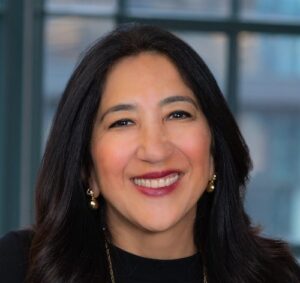
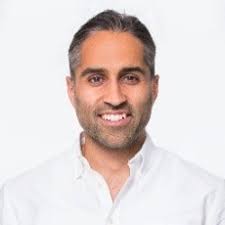 Karan Singh, BS 05, said his career purpose didn’t become clear until a life-changing event 13 years ago.
Karan Singh, BS 05, said his career purpose didn’t become clear until a life-changing event 13 years ago.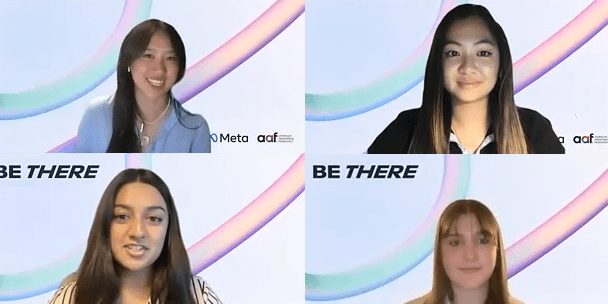
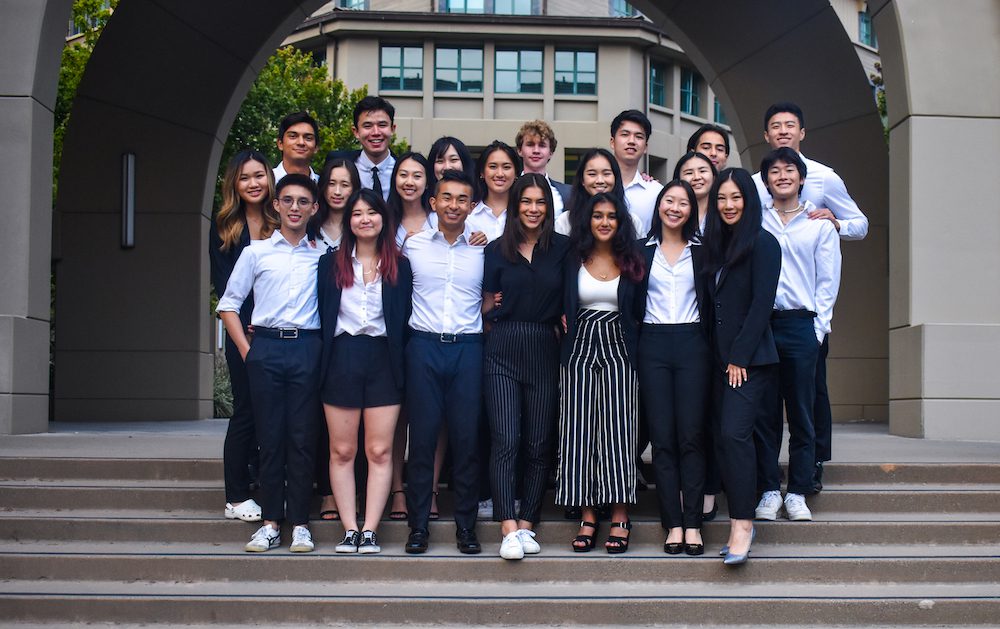
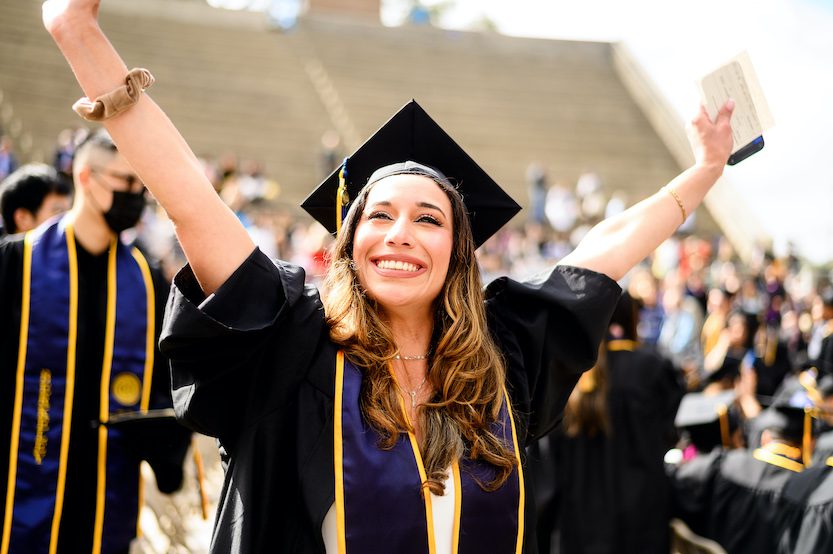
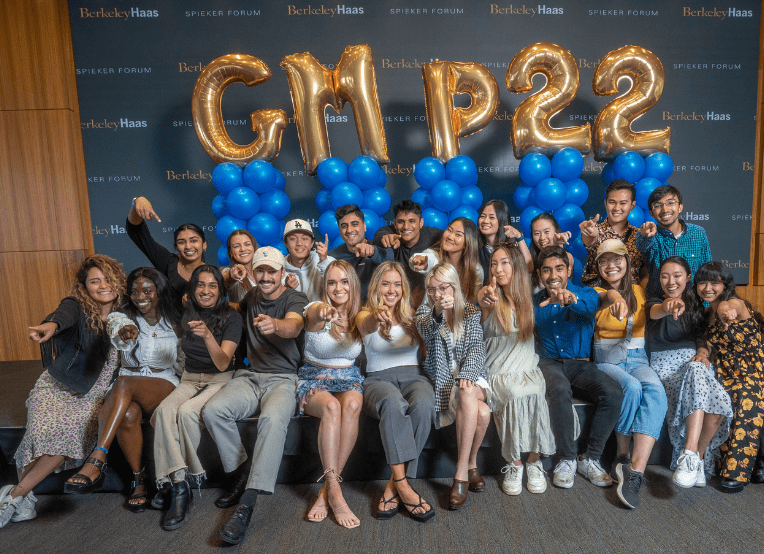



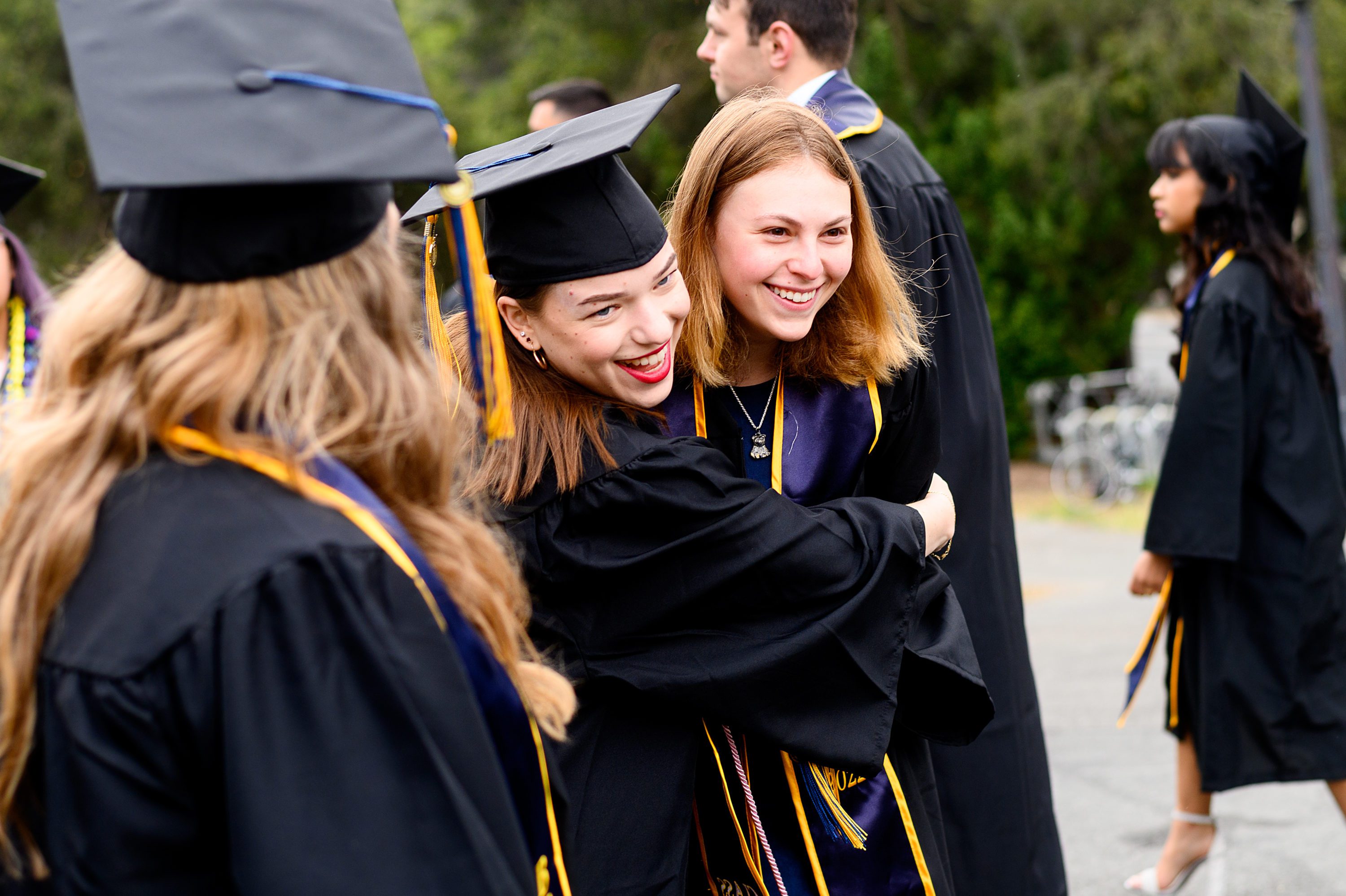



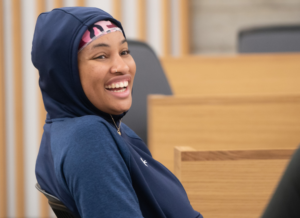
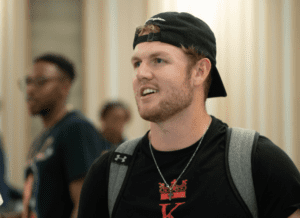
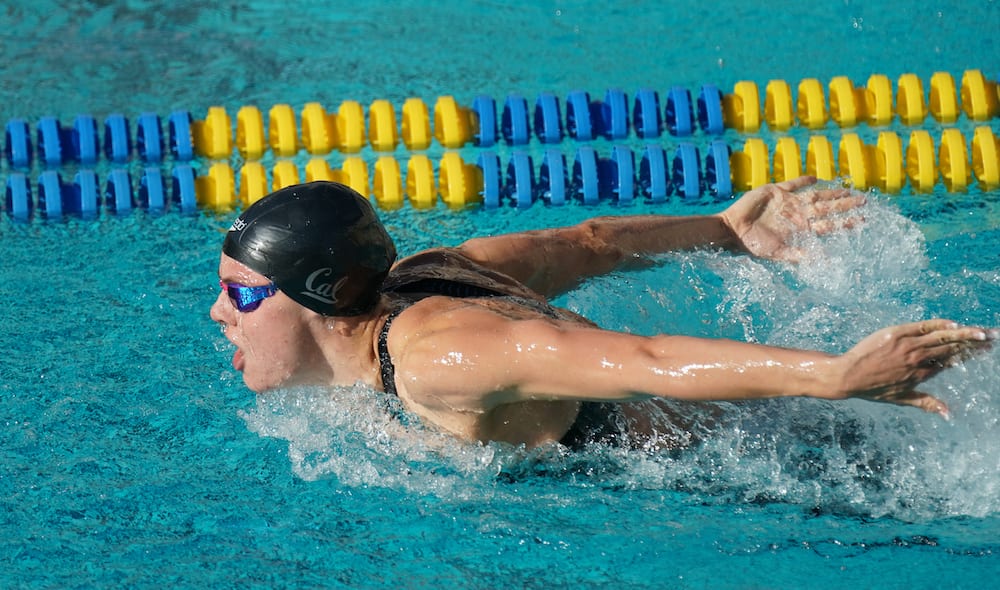
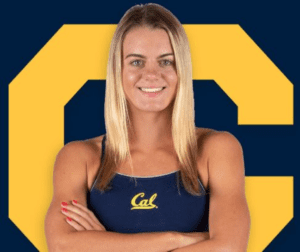
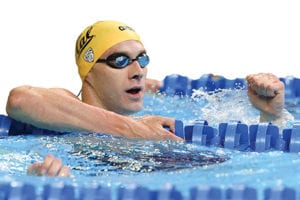
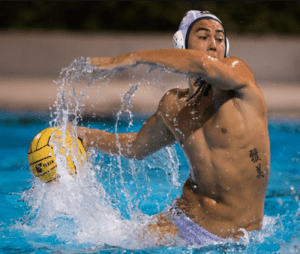
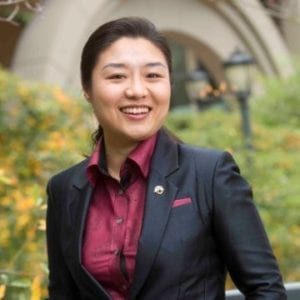
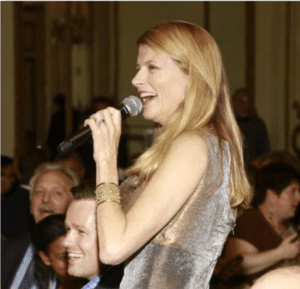 She started her career as an anchor and reporter at KXLF in Butte, Mont. in 1988. She joined the KTVU-Channel 2 newsroom two years later, where she launched and co-hosted the Morning Show with Ross McGowan for several years.
She started her career as an anchor and reporter at KXLF in Butte, Mont. in 1988. She joined the KTVU-Channel 2 newsroom two years later, where she launched and co-hosted the Morning Show with Ross McGowan for several years. 